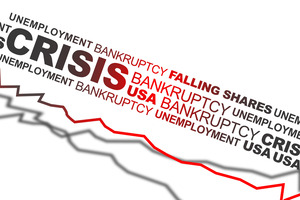Discharge Is One of the Most Important Aspects of Bankruptcy.
In Chapter 7, once you’ve completed all of your paperwork and gone through the stress of the meeting of creditors, you reach the discharge and are released from your debts. This means you are no longer legally obligated to repay the money you owe. In Chapter 13, discharge occurs after you’ve completed your repayment plan.
When considering whether or not you should file for either type of bankruptcy, it’s important to realize that not all debts are dischargeable and not all bankruptcy cases end in discharge.
What’s this Mean for You?
Student loans, legal penalties or fees, or domestic support obligations included in your bankruptcy do not offer the relief of a discharge. And if you are caught making false statements when you file for bankruptcy, you can be denied discharge all together. Always remember, if you try to game the system your entire bankruptcy will fail.
For more information about which debts are and are not eligible for discharge, check out this article from FindLaw.com.
Creditors are also given an opportunity to object to their debt being discharged in your bankruptcy. Creditors that show up to the meeting must prove that your debt was incurred through fraud or that the money you owe them should not be included in the bankruptcy. A debt can also be dismissed if a creditor can show you did not comply with the rules and requirements, or that it is not eligible for discharge.
Chapter 7 vs. Chapter 13 Bankruptcy Discharge
Chapter 7 bankruptcy is all about the discharge. Your discharge is granted after the objection period for creditors expires, which is about 60 days after your meeting with the bankruptcy trustee. In most Chapter 7 cases, it takes about four to five months to get a discharge, assuming there are no objections or other situations that could delay the case.
In Chapter 13, your focus is on your repayment plan for the majority of the bankruptcy. The discharge comes after you’ve completed your repayment plan, which can be a three to five year process. Most Chapter 13 discharges occur about four to six months after the completion of the plan.
What Happens Once the Discharge is Complete?
Once your debts are discharged, either through Chapter 7 or Chapter 13, you are no longer obligated to repay those debts, unless it is shown there was fraud or wrongdoing associated with your bankruptcy case.
Keep in mind, the discharge is not the end of your bankruptcy case. Creditors have up to a year from the entry of discharge or the date your bankruptcy case is closed to ask that a discharge be revoked. And trustees remain the legal owner of your assets until the case is closed, so you’re unable to sell your home or make any significant financial decision without approval from the trustee.
There are instances in which it takes years to close a case – leaving you feeling helpless and out of control. This is one of the reasons it’s so important to have an attorney working with you when you file for bankruptcy. Not only for help with the process of filing and completing bankruptcy, but also to ensure your bankruptcy is completed and closed properly and within a reasonable period of time.
If you are considering bankruptcy and you have questions about how the discharge of your debts will work, or you would like to speak to someone about beginning the process, contact the Law Offices of Robert M. Geller at 813.254.5696 to schedule a free consultation.




























![Signs That You May Need to File Bankruptcy [Infographic]](https://djml3wkzi26ea.cloudfront.net/wp-content/uploads/2021/01/signs-chap7-v-chap13.jpg)
![How To File for Bankruptcy [Infographic]](https://djml3wkzi26ea.cloudfront.net/wp-content/uploads/2020/07/bankruptcy-steps-infographic-web.jpg)










